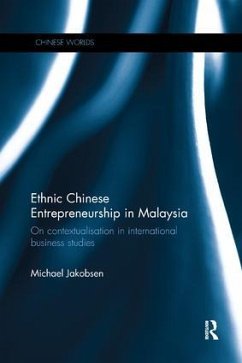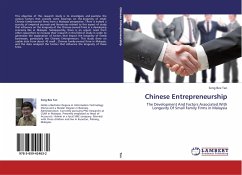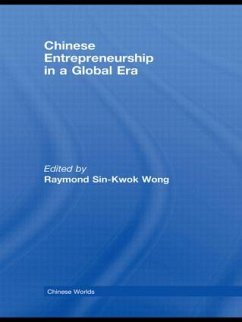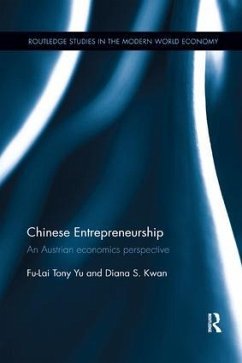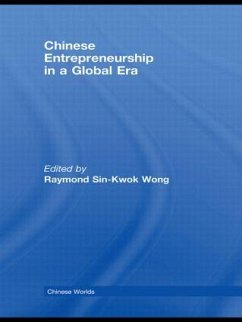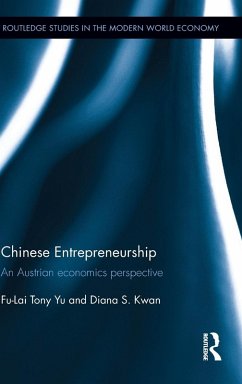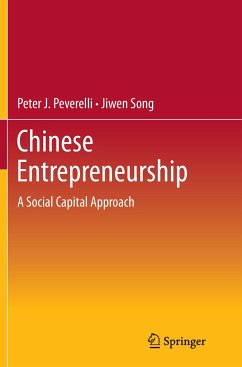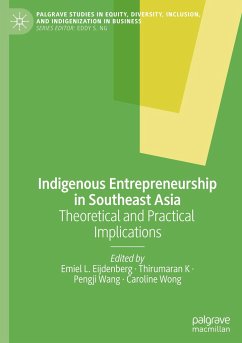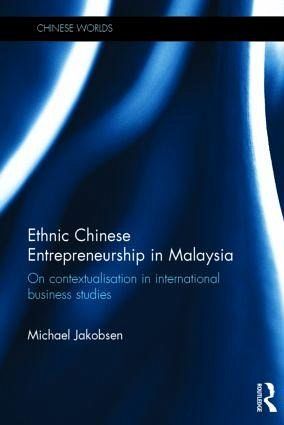
Ethnic Chinese Entrepreneurship in Malaysia
On Contextualisation in International Business Studies
Versandkostenfrei!
Versandfertig in 1-2 Wochen
176,99 €
inkl. MwSt.
Weitere Ausgaben:

PAYBACK Punkte
88 °P sammeln!
The study of ethnic Chinese in Southeast Asia has a long tradition. What is most striking in these studies is just how difficult it is to generalise about this ethnic group in the region. Whether or not they have been able to identify as Chinese has to a certain extend depended on different processes of social and political engineering, which in turn make them more or less distinct as an ethnic group. In the case of Malaysia, national political schemes such as the affirmative action policy indirectly force the Malaysian ethnic Chinese to conceive of themselves as a coherent collective, and yet...
The study of ethnic Chinese in Southeast Asia has a long tradition. What is most striking in these studies is just how difficult it is to generalise about this ethnic group in the region. Whether or not they have been able to identify as Chinese has to a certain extend depended on different processes of social and political engineering, which in turn make them more or less distinct as an ethnic group. In the case of Malaysia, national political schemes such as the affirmative action policy indirectly force the Malaysian ethnic Chinese to conceive of themselves as a coherent collective, and yet, when asked Chinese entrepreneurs in the maintain that despite the affirmative action policy ethnicity is not the a defining deciding factor when it comes to identifying business partners. This book focuses on the consequences of these kinds of policies in the field of inter-ethnic business practices and entrepreneurship in Malaysia within the wider context of the relationship between local, national and global markets. It focuses on the complexities of inter-ethnic relations and in particular, the strong economic position of the ethnic Chinese and their impact on the Malaysian economic scene as well as on the wider Southeast Asian region, underlining the degree to which inter-ethnic relations in Southeast Asia are crucial to understanding the political and economic complexitiescharacteristic of characterizing the region. In turn, it takes small and medium-sized enterprises as case studies, and shows how they are being shaped and in return shape the society in which they constitute a part. In doing so, the book highlights how these companies not only relate to the domestic economy, but also cater to the global economy, and presents a compelling argument for the introduction of a glocalised perspective in international business studies. Ethnic Chinese Entrepreneurship in Malaysia will be welcomed by students and scholars with an interest in Asian studies, political economy, international business studies, inter-ethnic relations and diaspora studies.





